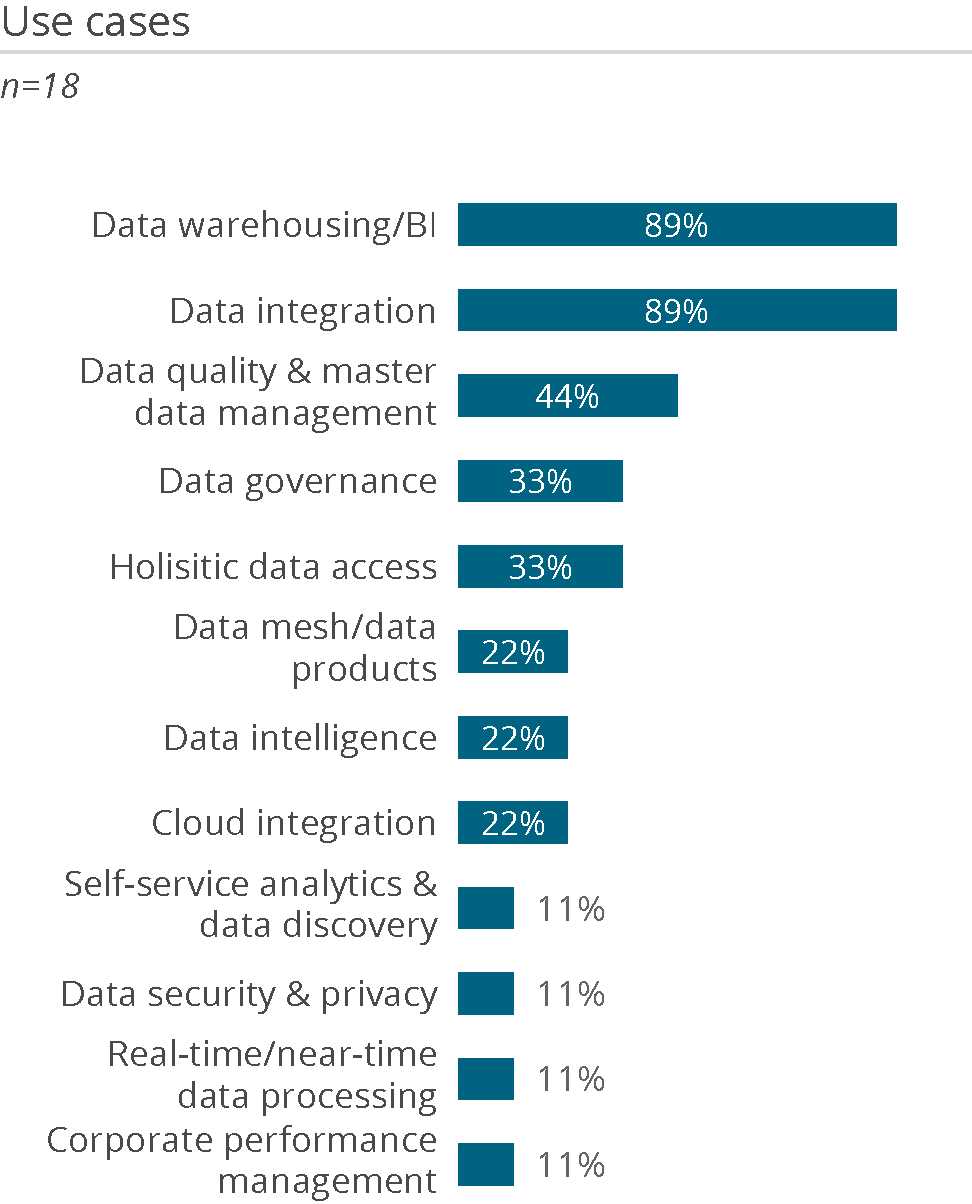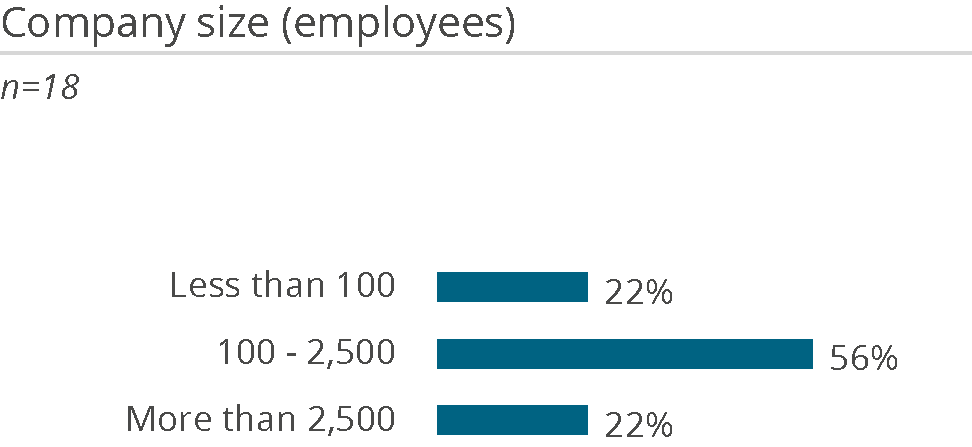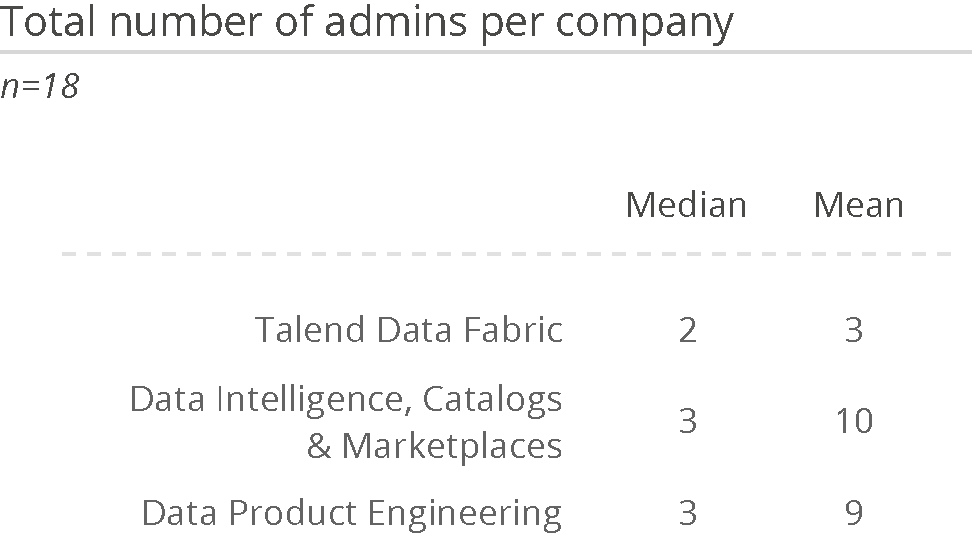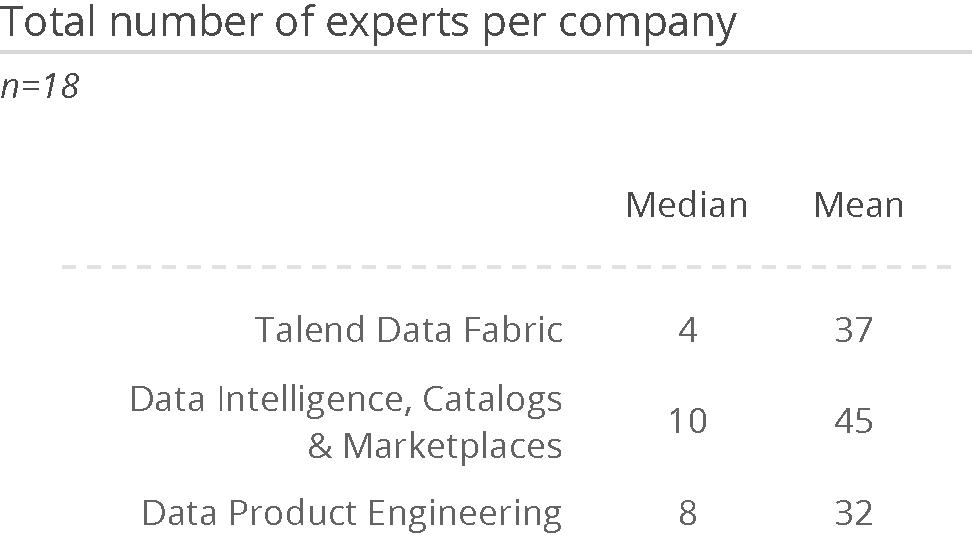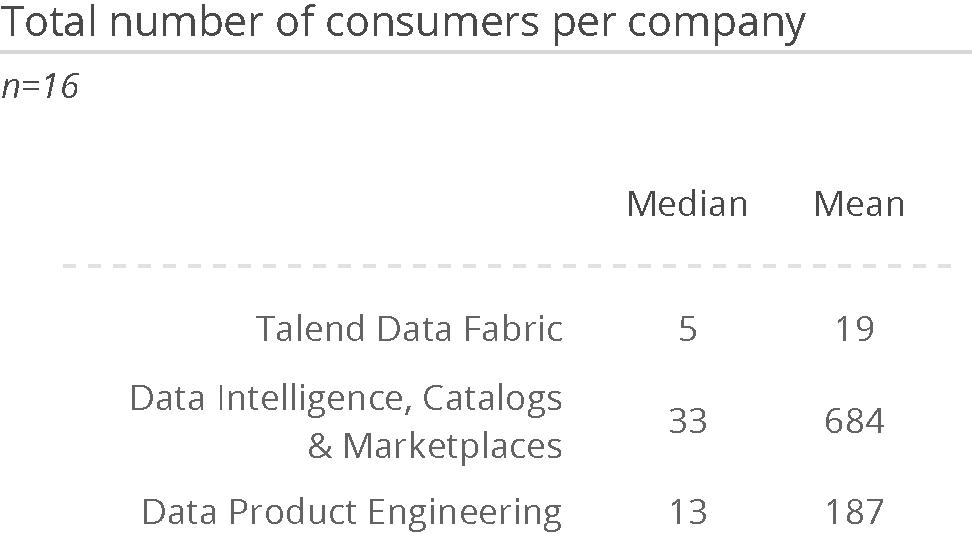Talend, a Qlik company Data Fabric
What is Talend, a Qlik company Data Fabric?
Platform for data and application integration with functions for data integration, streaming, data preparation, data quality, data cataloging, data intelligence and API management.
About Talend, a Qlik company Data Fabric
Self-description of the vendor
Would you like to find out more about BARC reviews? Our FAQs answer the most important questions.
Talend, a Qlik company Data Fabric BARC Review & Rating
Provider and product description
Qlik, originally founded in 1993 in Lund, Sweden, moved its headquarters to Radnor, Pennsylvania in the United States in 2005 after raising funds from several venture capital firms. It was acquired by the cur-rent owner – private equity company Thoma Bravo – in 2016. Qlik offers a broad portfolio of end-to-end, platform-based solutions for analytics and data management. In addition to Qlik Sense and Qlik Cloud Analytics, its portfolio includes data management capabilities such as data ingestion, transfor-mation, cataloging, quality and governance.
Qlik has greatly expanded its data management offerings through acquisition in recent years. Major acquisitions include Podium Data for data cataloging in 2018; Attunity for data integration in 2019; Blendr.io for IPaaS in 2020; NodeGraph for graph-based data cataloging, lineage and governance in 2021; and Big Squid for AutoML in 2021. In 2023, Qlik acquired Talend to enhance its data transfor-mation, data quality and data governance capabilities. And in early 2024, it purchased the technology and key talent of Kyndi, a provider of generative AI, natural language processing and search, to help companies explore and analyze unstructured data alongside structured data.
Qlik Data Integration and related tools manage data in support of both BI and data science projects. This includes Qlik Replicate, Qlik Cloud Data Integration, Talend Data Fabric, Talend Data Preparation and Talend Data Catalog. Talend Data Fabric enables customers to inventory, integrate, prepare, govern and share various datasets across the data and application layers. Despite the breadth of these capabili-ties, customers cite a number of challenges that raise questions about the future of Talend Data Fabric within the Qlik portfolio.
Together, these products deliver data for consumption by Qlik Sense, Qlik AutoML and third-party ana-lytics tools. While Qlik is transitioning to a SaaS model, products such as Compose for data warehouse automation are also available on premises or as a hybrid deployment.
Strengths and challenges of Talend, a Qlik company Data Fabric
BARC’s viewpoint on the product’s strengths and challenges.
Strengths
- Talend Data Fabric excels with connectivity to source and target systems. Nearly 80% of customers purchase the product for this reason, compared with half for its competitors.
- Customers rank Talend Data Fabric best in the ETL category for Platform Reliability and Connectivity. This reflects the maturity of its offering and market position as an incumbent vendor in many accounts.
- Talend Data Fabric has relatively high scores for Business Value, Functional Coverage and Extensibility in the ETL Tools peer group.
Challenges
- Customers encounter numerous problems with Talend Data Fabric compared with other tools. They include difficulties using the software, rising prices and a lack of product know-how.
- Customers struggle with delayed and unsuccessful projects that impair their time to market. Talend Data Fabric ranks lowest among its peers in these areas.
- Scalability is another significant problem for Talend Data Fabric, putting it below all its competitors in this KPI.
Talend, a Qlik company Data Fabric User Reviews & Experiences
The information contained in this section is based on user feedback and actual experience with Talend, a Qlik company Data Fabric.
The information and figures are largely drawn from BARC’s The BI & Analytics Survey, The Planning Survey, The Financial Consolidation Survey and The Data Management Survey. You can find out more about these surveys by clicking on the relevant links.
Who uses Talend, a Qlik company Data Fabric in a data management context and how
Why users buy Talend, a Qlik company Data Fabric and what problems they have using it
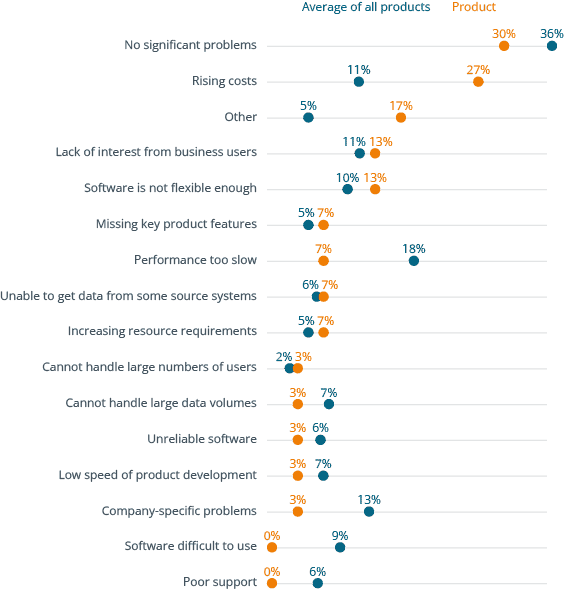
- Get independent information on software solutions, market developments and trends in data, analytics, business intelligence, data science and corporate performance management.
- Make data & analytics decisions based on numbers, data, facts and expert knowledge
- Access to all premium articles and all our research, including all software comparison studies, scores and surveys.
- Unlimited access to the BARC media library
- Consume unlimited content anywhere
Full user reviews and KPI results for Talend, a Qlik company Data Fabric
All key figures for Talend, a Qlik company Data Fabric at a glance.
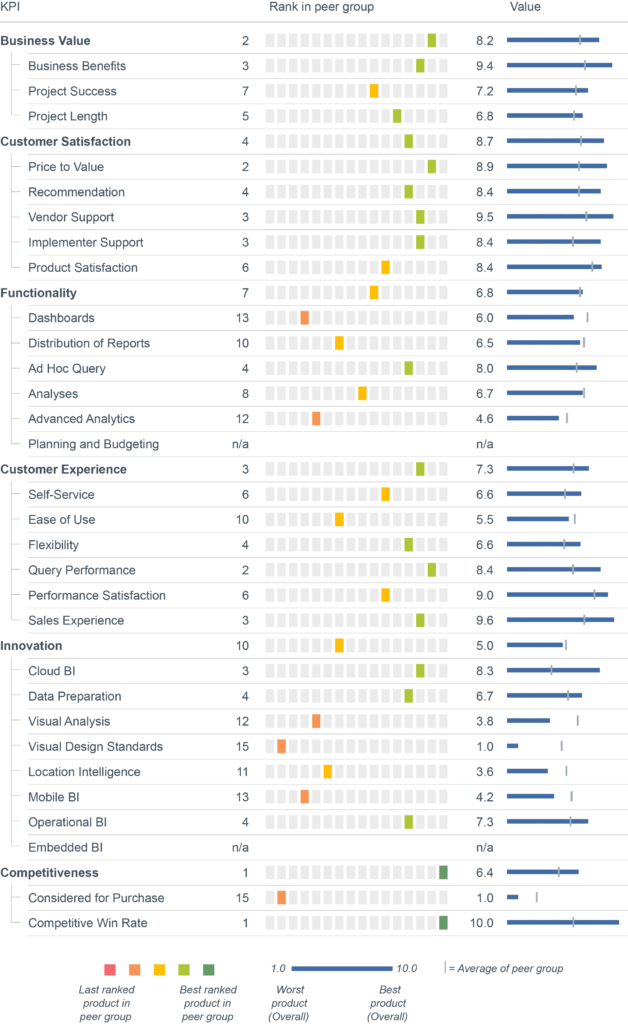
- Get independent information on software solutions, market developments and trends in data, analytics, business intelligence, data science and corporate performance management.
- Make data & analytics decisions based on numbers, data, facts and expert knowledge
- Access to all premium articles and all our research, including all software comparison studies, scores and surveys.
- Unlimited access to the BARC media library
- Consume unlimited content anywhere
